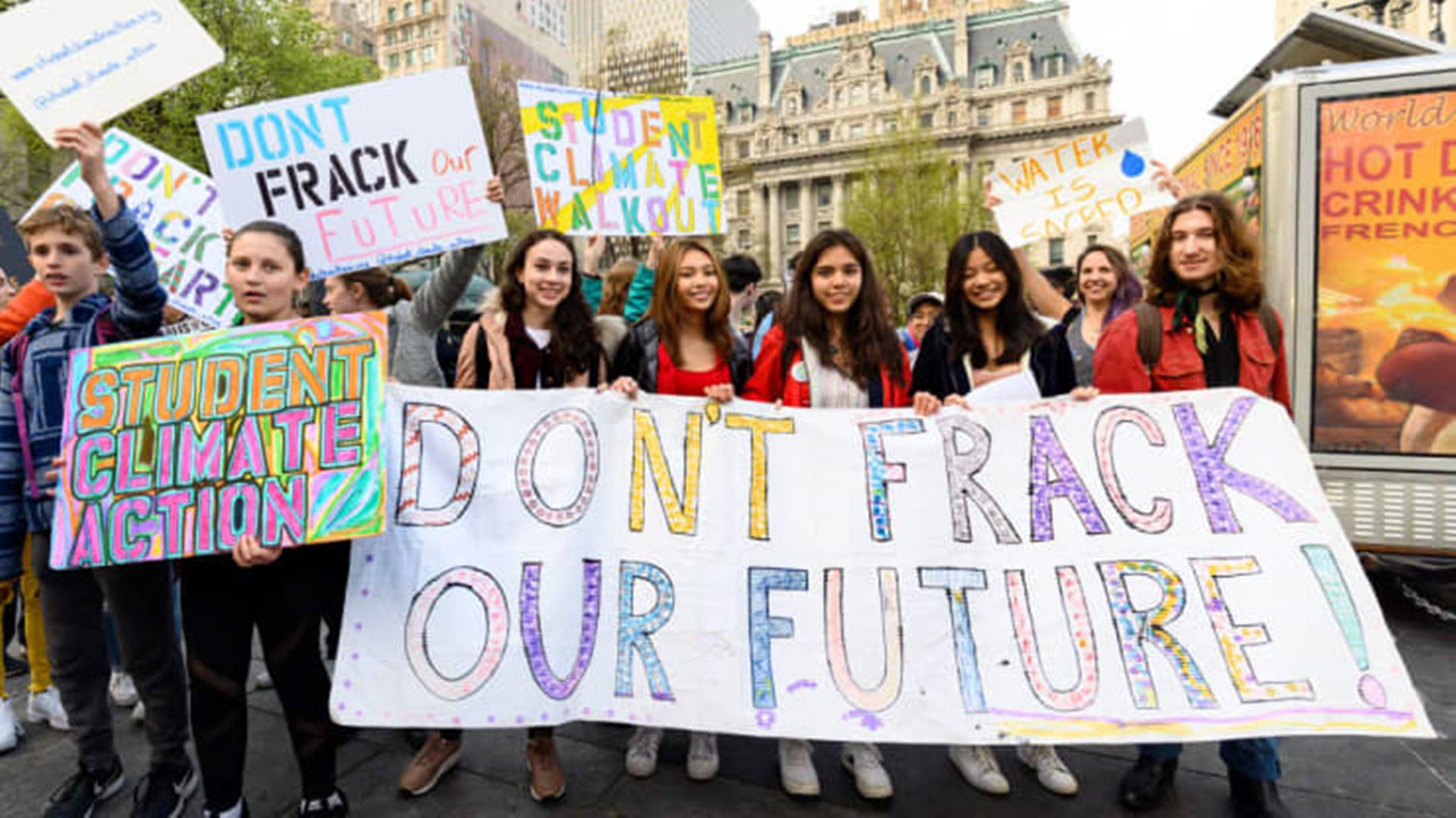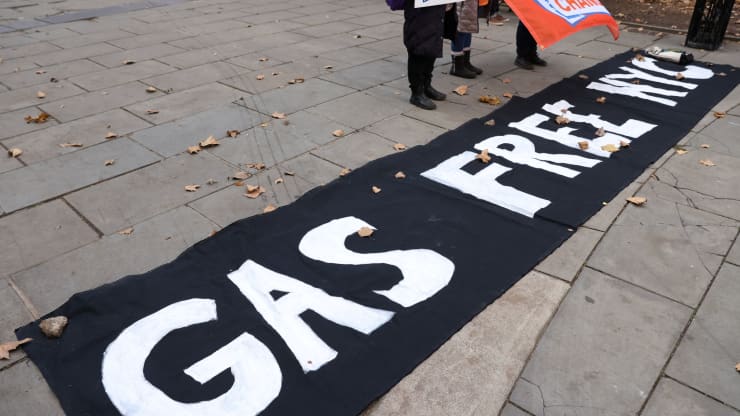The New York City Council on Wednesday voted to pass legislation banning the use of natural gas in most new construction, a move that will substantially slash climate-changing greenhouse gas emissions from the country’s most populous city

Michael Brochstein | LightRocket | Getty Images
The bill now goes to Mayor Bill de Blasio’s desk for signature. Once signed, the measure will go into effect at the end of 2023 for some buildings under seven stories, and in 2027 for taller buildings. Hospitals, commercial kitchens, and laundromats are exempt from the ban.
Under the law, construction projects submitted for approval after 2027 must use sources like electricity for stoves, space heaters, and water boilers instead of gas or oil. Residents who currently have gas stoves and heaters in their homes will not be impacted unless they relocate to a new building.
COP26: Arnold Schwarzenegger angered by world leaders’ climate policies
Buildings in New York City account for about 70% of its greenhouse gases. Today’s ban will likely push forward a New York state requirement to obtain 70% of its electricity from renewable sources like solar, wind, and water power by 2030 and achieve a net-zero emissions electric sector by 2040.
“If the largest city in America can take this critical step to ban gas use, any city can do the same,” Mayor Bill de Blasio said in a statement. “This is how to fight back against climate change on the local level and guarantee a green city for generations to come.”
The bill will cut about 2.1 million tons of carbon emissions by 2040 — equivalent to the annual emissions of 450,000 cars — and save consumers several hundred million dollars in new gas connections, according to a study by the think tank RMI.

ANDREW KELLY | REUTERS
The ban will also minimize the risk of gas explosions and reduce exposure to air pollution that poses health risks to residents, particularly low-income communities of color that are disproportionately exposed to pollution.
Similar policies have been debated across the country. A few dozen cities, including San Francisco, Berkeley, and San Jose in California; Cambridge, Mass.; and Seattle, have moved to ban natural gas hookups in some new buildings as a way to combat climate change.
Climate change: Fossil fuel production set to soar over next decade
However, states like Texas and Arizona have barred cities from implementing such changes, citing that consumers have the right to pick their energy sources.
Real estate groups, the oil and gas sector, and the National Grid — the utility that provides the city with natural gas — have strongly opposed the bill, arguing that it will cause a spike in demand for electricity that could prompt winter blackouts.
Opponents also argue that the legislation will prompt higher costs for buildings that use electricity for heat compared to those that use natural gas.
“The real estate industry is committed to working with policymakers to develop proven policies that meaningfully reduce carbon emissions from the built environment,” said James Whelan, president of the Real Estate Board of New York, a trade association for the city’s real estate sector.
10 Facts That Prove We’re in a Climate Emergency and Natural Solutions to Survive It
“While we appreciate that the efficient electrification of buildings is an important component of realizing these goals, these policies must be implemented in a way that ensures that New Yorkers have reliable, affordable, carbon-free electricity to heat, cool, and power their homes and businesses,” Whelan said.
Michael Giaimo, Northeast regional director of the American Petroleum Institute, an oil and gas lobbying group, said the bill was “rushed through the legislative process without adequate review, analysis or debate.”
“With additional time and study, we believe the Council will better appreciate the impact of enhanced electrification as well as the importance of a diverse energy mix,” Giaimo said. “Hydrogen and renewable natural gas can play a critical role in furthering the city’s emission reduction goals while maintaining affordability and preserving consumer choice.”
Con Edison, the city’s other major utility company that provides electricity in addition to gas, has been a proponent of the bill along with some sustainable building groups and energy analysts. Supporters have argued that the city’s grid is well equipped to handle an increase in electricity demand.
Environmental groups celebrated the vote Wednesday and urged New York state and the country to follow in its footsteps.
“America’s biggest city is serious about climate change, and today proves it,” said Alex Beauchamp, Northeast Region director of the environmental group Food & Water Watch.
“With a gas-free NYC, we can deliver better public health outcomes and make real strides to cut climate-warming emissions,” Beauchamp said. “Next up, New York state and the nation must follow suit.”
Napomena o autorskim pravima: Dozvoljeno preuzimanje sadržaja isključivo uz navođenje linka prema stranici našeg portala sa koje je sadržaj preuzet. Stavovi izraženi u ovom tekstu autorovi su i ne odražavaju nužno uredničku politiku The Balkantimes Press.
Copyright Notice: It is allowed to download the content only by providing a link to the page of our portal from which the content was downloaded. The views expressed in this text are those of the authors and do not necessarily reflect the editorial policies of The Balkantimes Press.
